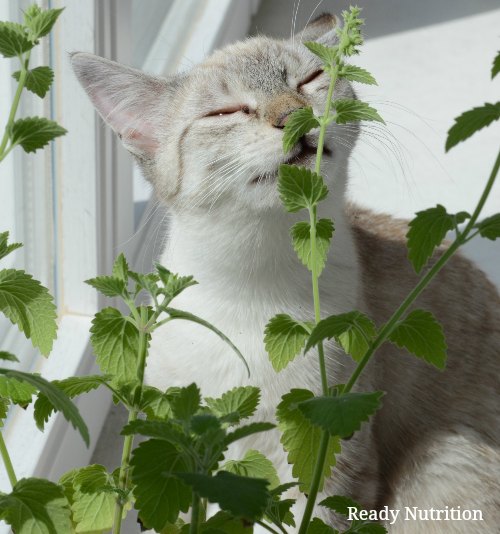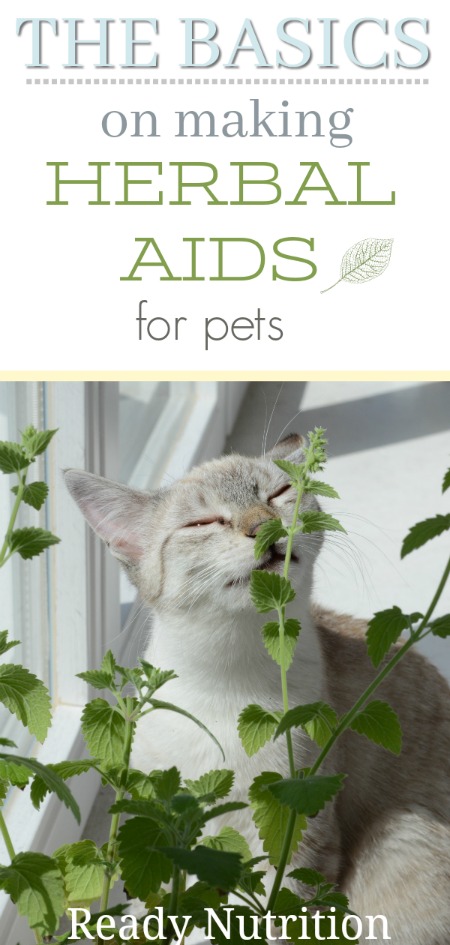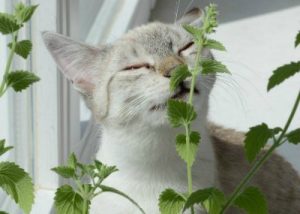 Herbs can be very beneficial for your pets for the same reasons they can help you: they are not as invasive nor addictive as pharmacological medications, and they have fewer side effects when administered properly and correctly. As a matter of fact, throughout history, animals have even been known to instinctively consume wild plants and herbs that have helped them with an ailment or illness. There’s even a term for it: zoopharmacognosy.
Herbs can be very beneficial for your pets for the same reasons they can help you: they are not as invasive nor addictive as pharmacological medications, and they have fewer side effects when administered properly and correctly. As a matter of fact, throughout history, animals have even been known to instinctively consume wild plants and herbs that have helped them with an ailment or illness. There’s even a term for it: zoopharmacognosy.
This primer on herbal and naturopathic aids for your pets will provide you tips that have proven results but sufficient research and planning must be undertaken on your part. Precautions must be taken to avoid accidentally giving them too much of an herb or having it create an adverse reaction if they are on medication or have an underlying health problem.
While veterinarians are good for charting pets health, a downside is pets will often be subjected to expensive blood-work tests and diagnostic workups that run hundreds of dollars, most of the time yielding nothing conclusive…except a bill for you to pay. After some vet visits, you may even feel shortchanged and begin to look at alternative treatments.
Creating Alternative Herbal Treatments for Pets
Most tinctures contain alcohol, sometimes harmful to pets. The way around this is with an infusion, a fancy word for a “tea,” when the herb is steeped in hot water after allowing it to set off of a boil. A primary, basic method of administration is the dried herb. This can either be ground up and added to the food, or placed into a clear capsule and administered PO (by mouth). The latter is how I administer herbs to my pets.
Here’s a chart that will give you some guidance:
Weight of Pet Dried Herb Infusion/Tea
Up to 10 lbs. 1/8 tsp. 1/8 cup
10 to 20 lbs. ¼ to ½ tsp. ¼ cup
20 to 50 lbs. ½ to 1 tsp. ¼ to ½ cup
50 to 100 lbs. 1 to 2 tsp. ½ to 1 cup
Greater than 100 lbs. 2 to 3 tsp. 1 cup
The most important thing is to follow the motto of the Special Forces Medic: “Primum non nocere,” that is, “First I shall do no harm.” Do not exceed either your competence or your confidence. If you have a life-threatening emergency, take your pet to the emergency room. For long-term illnesses or ailments, however, you will have learned something about your pet that vets do not know entirely: true patient history. You must combine what you will do with herbs to your pet’s actions and habits, and the past medical history. Before administering any herbs, here is what you must research:
- All of your pet’s medical history (to include medications) and treatments
- Idiosyncrasies and precautions specific to your pet (if your dog has canine diabetes, for example)
- Idiosyncrasies and precautions specific to the species (dog, cat, bird, fish)
- Know your pet inside and out: sleeping and eating habits, weight (to include changes…gains or losses)
- Research supplements and herbs thoroughly and individually…for quality, reliable supplier, and price
Research Herbal Medicine for Your Pet
Herbs for Horses, Ponies, Donkeys & Mules: Horses Herbal Medicine – Ponies Herbal Medicine [1]
Herbs for Dogs: Dogs Herbal Medicine [2]
Herbs for Cats: Cats Herbal Medicine [3]
Aromatherapy [4] (the use of so-called essential oils) is a branch of herbal medicine. However, it is mainly distillates (volatile fractions) that are used, so the indications and usages vary.
While homeopathy [6] uses herbs in the preparation of some of its medicines, it should not be confused with herbal medicine. The rationale of use, the indications and the mode of action are very different in many cases.
Community colleges and county extension offices will offer classes on herbs and also on first aid for pets. Your local library will have many books on pets, herbs, and holistic health care: study up on them. Seek out those you know with experience in these areas and learn from them.
In a future article, we’ll cover specific herbs for pets and indications for their use. Take the time to lay out a plan to address your pet’s ailment not as a problem, but as a challenge that you can both overcome together. JJ out!

